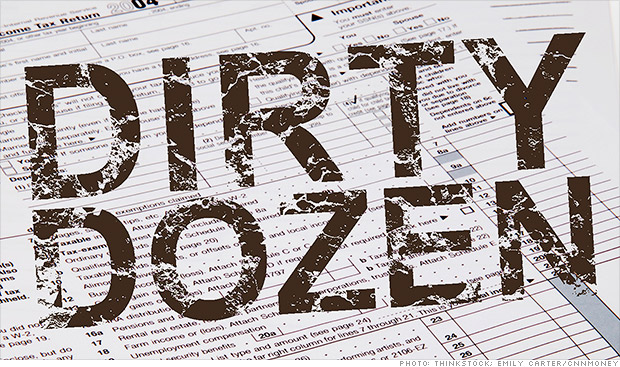Abusive tax shelters, trusts and conservation easements make the IRS “Dirty Dozen” list of tax scams to avoid!
WASHINGTON — The Internal Revenue Service warns taxpayers to steer clear of abusive tax avoidance schemes and the unscrupulous individuals who promote them. Three variations of these schemes are;
- abusive trusts
- abusive micro-captive insurance shelters
- abusive syndicated conservation easements
The Dirty Dozen
Taxpayers are reminded that they who participate in illegal schemes will face prosecution and civil litigation. Ultimately they’ll have to pay all taxes owed along with stiff penalties and interest. Participants who utilize such schemes for tax evasion also risk imprisonment.
The three schemes described in today’s release all start with a legitimate tax-planning tool that is improperly distorted usually by a promoter. They do this to produce benefits that are too good to be true and ultimately compromise the taxpayer. Taxpayers should be highly skeptical of such claims.
Abusive tax evasion schemes involving trusts
Abusive trust arrangements often use multiple layers of trusts as well as offshore shell corporations and entities. They are disregarded for U.S. tax purposes to attempt to hide the true ownership of assets and income. They usually disguise the substance of transactions.
Although these schemes give the appearance of separating responsibility and control from the benefits of ownership, such as through the use of purported mortgages or rental agreements, false invoices, fees for services never performed, purchase and sale agreements and distributions. The taxpayer in fact continues to control the structures and directs any benefits received from them.

